Primary and Secondary Schools in Canada
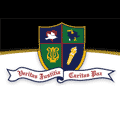
Academie Ste. Cecile International School
Windsor, Canada
Academie Ste. Cecile International School is an elementary and secondary, day and resident school based in Windsor, Ontario, Canada. Since it is also an IB school, it receives students from all nationalities. The school takes special pride on the fact that it was established and is based on principles of the Roman Catholic Church. The school teaches respect for different faiths and cultures as well as promoting diversity in its student body and faculty. Academie Ste. Cecile International School is associated with the University of Windsor with access to library resources, laboratories and... See full description.
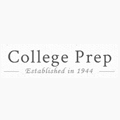
College Prep International
Montreal, Canada
College Prep International came into existence as a private institute in 1944 and is located in Montreal, Canada. Enrollment at the college is open to all regardless of their mother tongue. Students currently studying there are from over 20 countries worldwide. The teaching method is to offer special and individual attention to its students. State of the art facilities which the campus entails are multimedia rooms, ultra-speed internet network and computer labs. Students participate in the local science fair and music & art programs.
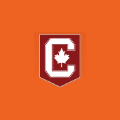
Columbia International College
Hamilton, Canada
As the largest private boarding high school / university preparatory school in Canada, Columbia International College has an enrollment of 1700 students from over 70 countries.
Since 1979, under our unique Total Care Education System®, we have been preparing international students to be responsible global citizens and achieve their goal of gaining admission into top universities in Canada and worldwide. The diversity of Columbia’s staff and students enhances the learning environment and encourages creative thinking.
Columbia believes in the individuality of each student; thus we... See full description.
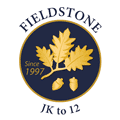
Fieldstone Day School
Toronto, Canada
Fieldstone Day school was created in 1997 in Toronto Canada. In collaboration with Fieldstone college school, there are about 300 students now studying in this group of 2 schools based in northwestern Toronto. The school follows a ‘’Global Knowledge’’ kind of Curriculum coined by E.D Hirsch. The institution also provides an opportunity for students to participate in extracurricular activities such as ball hockey, badminton, basketball, cross country, soccer, skiing/snowboarding, dramatic arts etc. Additionally, Fieldstone Day School strives to always keep a team of nurturing and... See full description.
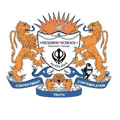
Headway School
Edmonton
We are a regular day M-F, KG-Grade 12 school for Canadian children.
We take Grade 7 to Grade 12 INTERNATIONAL students.
Tuition is C$ 6500
Bussing is C$ 1000
Room and Board costs C$ 13000. School can arrange this or parents can arrange this.
Students get picked up at airport by school.
Second language is French or Punjabi.
Parents buy health Insurance.
Parents give extra spending money.
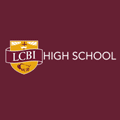
LCBI High School
Outlook, Canada
LCBI High School is one of Canada’s most renown private schools. It is a co-educational, boarding, Christian school, located in Outlook, Saskatchewan. The institution offers high quality academic courses, which have been recognized by the Saskatchewan Ministry of Education; they are also fully transferable to other provinces and are used for entrance to post-secondary institutions. LCBI High School is truly international in nature – students have been coming from Mexico, Denmark, Norway, Japan, Brazil, etc. It is also known for its rich extra-curricular program, which includes... See full description.
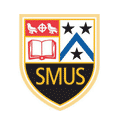
St. Michaels University School
Victoria, Canada
St. Michaels University School is a private Canadian co-educational, independent day and boarding school. The school was founded in 1906, and is currently accredited by Canadian Accredited Independent Schools (CAIS), the national accrediting body for Canadian independent schools. It educates 930 students from kindergarten to Grade 12. The main purpose of St. Michaels University School is to help students achieve their full academic potential in an environment which stimulates their character and personality. They offer 24 subjects, some of which are Environmental Science, French Language,... See full description.

The Prestige School
Toronto
The Prestige School is an independent non-denominational school that offers an enriched education that nurtures critical thinking, character building and leadership development.
Grounded in the knowledge of the individual learning profiles of each student, teachers develop mentoring relationships within small classes that set up each student for success.
The Prestige School
44 Appian Dr Toronto, ON M2J 2P9
Canada
(647) 494-9977
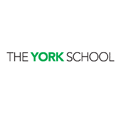
The York School
Toronto
The York School is a coeducational JK to grade 12 independent school. Located in the heart of Toronto, The York School was founded in 1965 and is the first school in Canada accredited to offer the International Baccalaureate from junior kindergarten to university entrance.
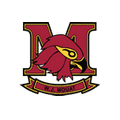
W. J. Mouat Secondary School
Abbotsford, Canada
WJ Mouat Secondary School was founded in 1973 at Abbotsfordd, BC, Canada. The school is known for its excellent educational services as in 2004 it was ranked as one of the ten most innovative schools in Canada by MacLean’s magazine. The school has a unique character development program which incorporates concepts of respect, responsibility, integrity, care, awareness and teamwork. The school also holds pride in being good at athletics and arts. W. J. Mouat Secondary School won the provisional championships in football, wrestling and basketball in the years 2008, 2009 and 2011... See full description.
Primary and Secondary Schools in Canada by City:
AbbotsfordBethanyEdmontonHamiltonLa PocatièreMontrealOutlookRosseauSt. CatharinesTorontoVictoriaWindsorAbout Primary and Secondary Schools in Canada
The education system in Canada is highly regarded and a major priority of the Canadian government, at both the national and provincial levels. The country plays host to both public and private schools, serving students at each level of their education, and while each type of school—public and private—must conform to the educational curriculum and policy established by the province in which its located, private schools maintain the authority to make their own decisions with regard to admissions, tuition and personnel. The public schools in Canada, at both the primary and secondary level, are fully funded by the national government, accounting for approximately 7 percent of GDP as of 2011.
Because education is largely a provincial responsibility under the Canadian constitution, there are some slight variations between the education systems of the 10 different provinces. For example, education is compulsory for students in Canada from age 6 through 16, save for Ontario, New Brunswick and Manitoba where students must attend school until age 18. Additionally, there are certain provinces in which students, under certain circumstances, can take a leaving examination as early as 14 years of age.
Kindergarten is available to children in every province of Canada, but because this stage of education is not compulsory, there are some differences amongst the provinces in terms of the funding amount provided for kindergarten and the hours children attend. Junior kindergarten, a program that is roughly equivalent to the U.S. preschool or pre-kindergarten stage, is only available on a public basis in the province of Ontario.
Every child in Canada begins their compulsory education at approximately age 6 in Grade One. This is the beginning of 8 years of primary (elementary) education that will end with the completion of Grade Eight. The only exception to this model is found in Quebec, where primary or elementary school spans from Grade One through Grade Six, with students also beginning their studies at 6 years of age. As you can see, the length of what most Canadian provinces call “primary” or “elementary” education differs from that of the United States and many other countries throughout the world (8 years instead of 6 years), as grades 7 and 8 in most other countries is considered junior high school, middle school, or lower secondary school—a level that is not included in any of the Canadian provinces.
Once Canadian students complete their elementary school education, usually at age 14, they are promoted to high school—the secondary level of studies—where 4 years of general education (English, French Mathematics, Science, etc.) is provided, spanning from Grade 9 to Grade 12. In French-speaking Quebec, however, students are promoted to secondary school at age 12 to attend the école secondaire, which translates literally to secondary school. There they will spend 5 years, in grade levels titled “Secondary I through Secondary V, the U.S. equivalent to grades 7-11. Following secondary school in Quebec, students have the option of attending one of the “colleges,” and taking the two-year university preparatory course of study, or enrolling in the three-year professional program that leads directly to a position in the Canadian workforce. In all other provinces, once a student successfully completes secondary school, he/she is then eligible to apply for tertiary school (university, junior college, vocational school, etc.) admission.
In a survey taken three years ago it was found that 1 out of 10 Canadians did not possess a high school diploma, and only 1 in 7 Canadians went on to earn a university degree. Recently, however, those statistics have been drastically improving due to changes in the labor market that now require individuals to have, at minimum, a high school diploma and, in certain instances, a university degree.
Because education is largely a provincial responsibility under the Canadian constitution, there are some slight variations between the education systems of the 10 different provinces. For example, education is compulsory for students in Canada from age 6 through 16, save for Ontario, New Brunswick and Manitoba where students must attend school until age 18. Additionally, there are certain provinces in which students, under certain circumstances, can take a leaving examination as early as 14 years of age.
Kindergarten is available to children in every province of Canada, but because this stage of education is not compulsory, there are some differences amongst the provinces in terms of the funding amount provided for kindergarten and the hours children attend. Junior kindergarten, a program that is roughly equivalent to the U.S. preschool or pre-kindergarten stage, is only available on a public basis in the province of Ontario.
Every child in Canada begins their compulsory education at approximately age 6 in Grade One. This is the beginning of 8 years of primary (elementary) education that will end with the completion of Grade Eight. The only exception to this model is found in Quebec, where primary or elementary school spans from Grade One through Grade Six, with students also beginning their studies at 6 years of age. As you can see, the length of what most Canadian provinces call “primary” or “elementary” education differs from that of the United States and many other countries throughout the world (8 years instead of 6 years), as grades 7 and 8 in most other countries is considered junior high school, middle school, or lower secondary school—a level that is not included in any of the Canadian provinces.
Once Canadian students complete their elementary school education, usually at age 14, they are promoted to high school—the secondary level of studies—where 4 years of general education (English, French Mathematics, Science, etc.) is provided, spanning from Grade 9 to Grade 12. In French-speaking Quebec, however, students are promoted to secondary school at age 12 to attend the école secondaire, which translates literally to secondary school. There they will spend 5 years, in grade levels titled “Secondary I through Secondary V, the U.S. equivalent to grades 7-11. Following secondary school in Quebec, students have the option of attending one of the “colleges,” and taking the two-year university preparatory course of study, or enrolling in the three-year professional program that leads directly to a position in the Canadian workforce. In all other provinces, once a student successfully completes secondary school, he/she is then eligible to apply for tertiary school (university, junior college, vocational school, etc.) admission.
In a survey taken three years ago it was found that 1 out of 10 Canadians did not possess a high school diploma, and only 1 in 7 Canadians went on to earn a university degree. Recently, however, those statistics have been drastically improving due to changes in the labor market that now require individuals to have, at minimum, a high school diploma and, in certain instances, a university degree.

